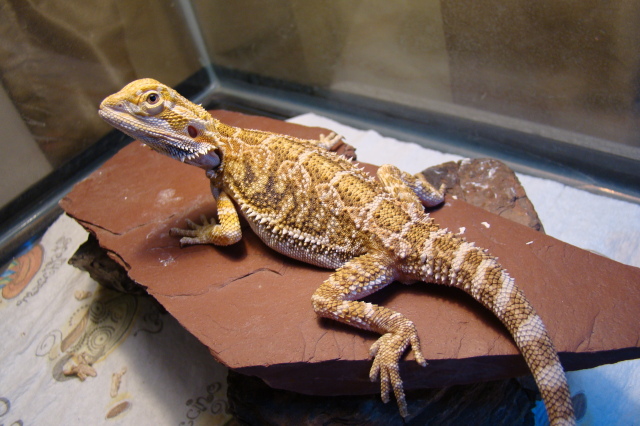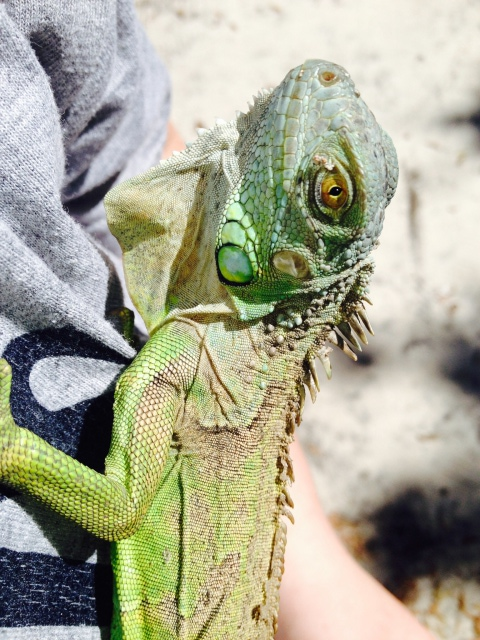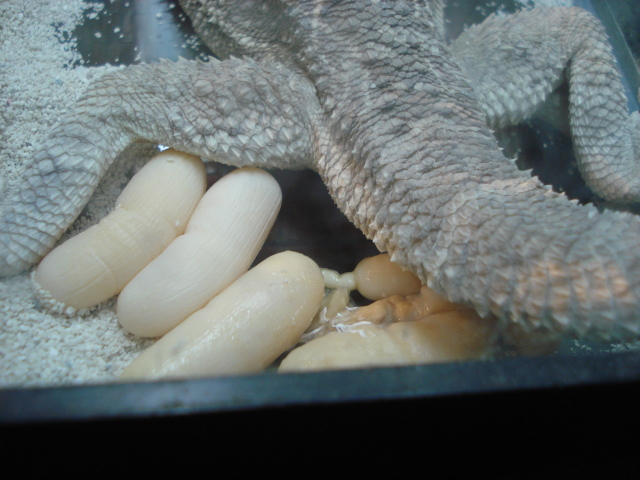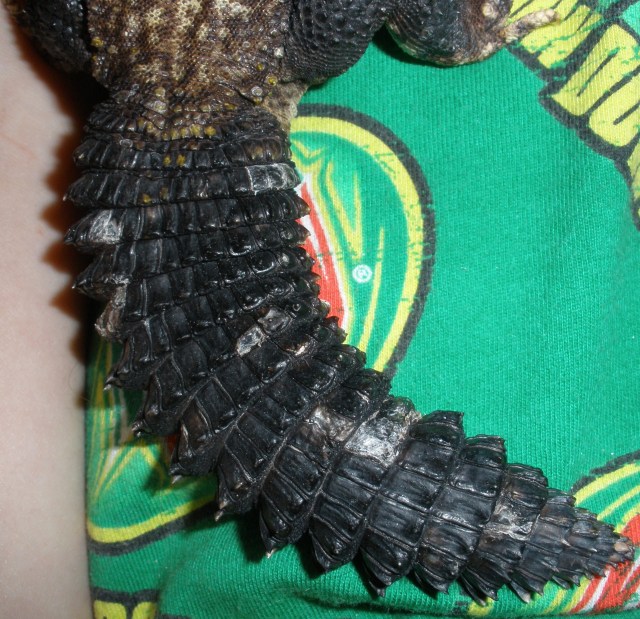QuestionI have a pregnant leopard gecko and I am wondering if I need to care for her different than i usually do. Also when I should be expecting eggs because she is one week pregnant and I do not have an incubator and I do not know if i should just buy one or if I should make one.Also how many eggs should I be expecting in all
AnswerReptiles don't work quite the same way that mammals do, so calculating how long after mating they will lay eggs is not always accurate. Leopard geckos can store sperm for up to a year, so a single mating can produce many clutches of fertile eggs. Generally speaking, expect eggs as early as 2 weeks from now (though it could be much longer, that's up to her), and every 2 to 3 weeks thereafter. Close to laying, you will be able to see the eggs inside her, through her thin belly skin. They are quite large for her size.
Breeding leopard geckos should be well-fed, and have proper calcium and D3 supplements. Many breeders provide a small dish of calcium powder (without D3) in the cage, so that the gecko can lick the calcium if she chooses (in addition to dusting her insects). Make sure insects are well gut-loaded with nutritious food, and use a multivitamin powder supplement once a week.
You will probably want to buy an incubator, to save yourself the hassle of building one. I recommend a simple, inexpensive, still-air model chicken egg incubator called a Hovabator. You can use the thermostat included with the device, but you'll have to fuss over it a lot. Use an accurate digital indoor/outdoor thermometer with a remote probe to track temperatures inside. A quality proportional digital thermostat is a better choice for controlling the incubator, though they are expensive.
You will also need small deli cups and vermiculite. Mix vermiculite 50/50 with water by weight (not by volume). It should be moist enough to hold together when you squeeze it, but you should not be able to wring any water out of it.
Your leopard gecko will lay eggs, usually 2 at a time, every 3 weeks until she is done (she decides when that is, lol). Usually 4 to 6 clutches are produced in a season. If she continues after that, you may have to make changes to lighting and temperatures to try to get her to stop, so she can rest. Keeping the male separate will also help to ensure she stops laying sooner. (Females that keep laying eggs all year will quickly become run-down and exhausted, their health suffers, and they die young as a result).
Eggs will hatch 40 to 60 days after they are laid. (Start checking daily after 35 days). I assume you have already done your research on incubation temperatures, etc.
Be sure you are ready for hatchlings! You will need separate cages for the little ones, including controlled heat, and appropriate-sized food. (1/8" to 1/4" size crickets, etc. No mealworms for the babies). Hatchlings will begin feeding after their first shed, and eat daily. Hatchlings can be housed in small groups, with supervision, but only with other hatchlings of the same size--so you will need (at least) a separate enclosure for each clutch. Separate hatchlings if one appears smaller or thinner, or isn't growing as fast as the other. (Dominant animals can suppress and interfere with submissive animals, and keep them from eating well). You'll want to have all of this ready before you have hatchlings!
You may also consider a small hatchling rack, rather than individual cages. Companies like Animal Plastics make affordable hatchling racks with built-in heat (All you need is the thermostat. I prefer Spyder Robotics Herpstat thermostats for my racks).
Hatchlings are generally sold after they're over 3 weeks old and feeding and growing well. Younger hatchlings are considered too fragile to sell or rehome.
Like all reptiles, they will hatch out skittish and defensive, and they may even scream at you, and bite. (Don't worry, it will be the cutest thing you've ever seen). Young reptiles settle down naturally as they grow older, and leopard geckos over 6 months old will tame down easily with regular gentle handling. Be careful of their tails, as they will be quite jumpy, and their tails will break easily. They will regrow, but will never be as beautiful as the original (geckos with regrown tails are harder to find homes for).

 constipation
QuestionQUESTION: My bearded dragon will be a year in t
constipation
QuestionQUESTION: My bearded dragon will be a year in t
 Green iguanas
Question
Green iggy
Hi I have two green iguanas
Green iguanas
Question
Green iggy
Hi I have two green iguanas
 Determining whether eggs are fertile
QuestionLizzie eggs
QUESTION: We have a female b
Determining whether eggs are fertile
QuestionLizzie eggs
QUESTION: We have a female b
 Uromastyx problems
Question
Ramoth
Ive recently rescued a pair of what I w
Uromastyx problems
Question
Ramoth
Ive recently rescued a pair of what I w
 Can my bearded dragon eat dead crickets?
QuestionQUESTION: I have a about 6 month old bearded dr
Can my bearded dragon eat dead crickets?
QuestionQUESTION: I have a about 6 month old bearded dr